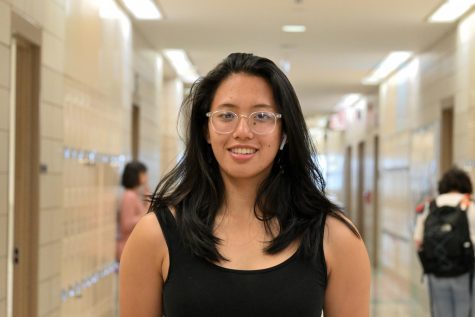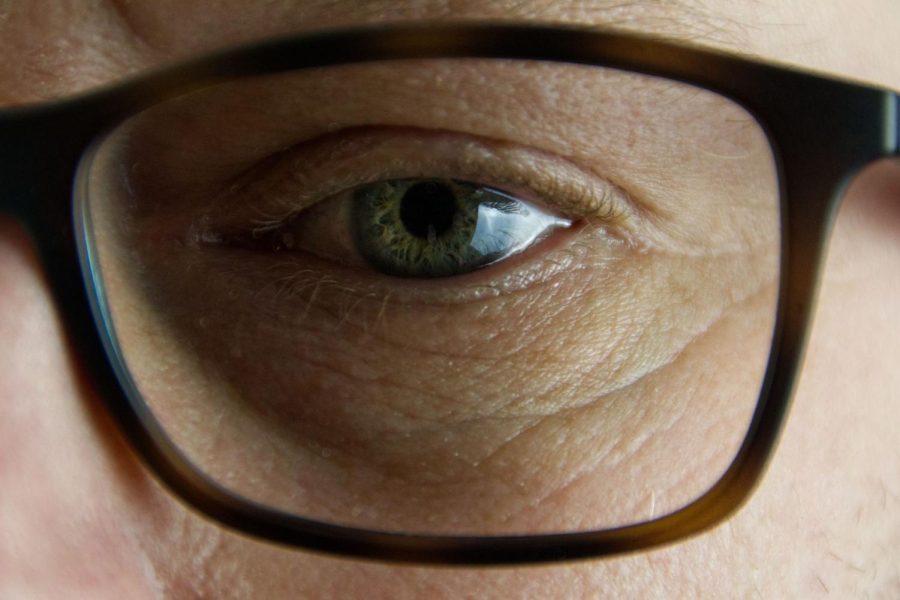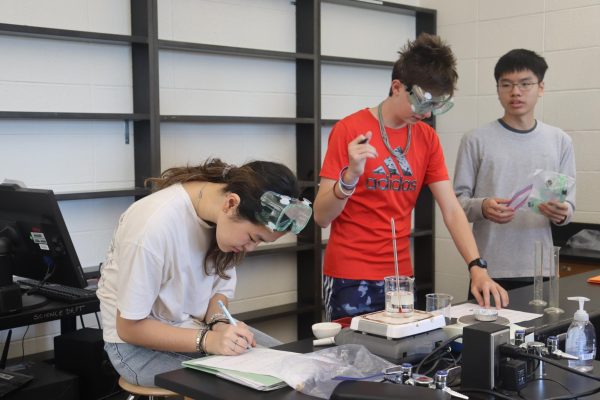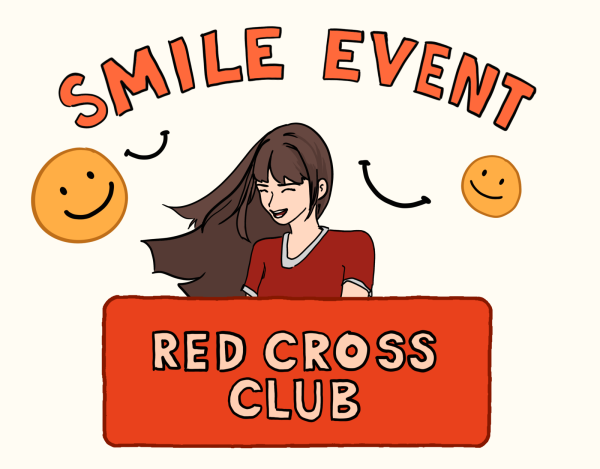Do blue light glasses really work?
Blue light glasses are very popular amongst students and seem to work for many.

In the past decade, the presence of artificial blue light in the daily lives of students has increased substantially. Every class involves the use of a light emitting diode (LED) device in some shape or form, raising concerns over the impact of blue light on students’ optical health and sleep schedules. To remedy this, many individuals have adopted anti-blue light lenses, which have yet to be proven fully effective by scientific studies.
The users of these lenses, however, herald their efficacy. “When I’m looking at a screen, using blue light glasses gets rid of my eye strain,” said sophomore Renchhen Lama.
Blue light is a color in the visible light spectrum with low wavelength and high energy. Our main source of blue light is the sun, and it also radiates from computers, phones, TVs, and fluorescent and LED light bulbs.
To explain the issue with excessive blue light, we must first explain the role it is supposed to play in influencing our bodily functions. In natural doses, blue light is beneficial; it keeps you awake, alert, and positive during the day. It also regulates our bodies’ circadian rhythm, or our natural wake and sleep cycle. Exposure to it suppresses the release of melatonin, a hormone that makes us drowsy, resulting in our urges to wake up at sunrise and sleep at sunset.
The use of blue light sources past sunset is known to significantly delay our circadian rhythm by preventing the release of melatonin. One study showed that using an E-Reader within the hours before bed correlated with worse sleep quality and less morning alertness.
“Looking at my phone before bed makes it hard to fall asleep, and I end up staying awake a little longer,” confirmed junior Julia Chang.
A disturbance of our circadian rhythms can increase the risk of several health adversities, including diabetes 2, premature death, cardiovascular dysfunction, cancer, metabolic syndrome, immune dysregulation, reproductive problems, learning deficits and mood disorders. These mood disorders include depression, anxiety, bipolar disorder and seasonal affective disorder.
Another concern is the effect of blue light on our eyes.
Many worry that it could possibly cause retinal damage and macular degeneration—however, the gravity of this issue is over exaggerated. Though there is evidence that constantly looking at powerful blue light sources is dangerous (i.e. the sun or military grade flashlights), looking at screens generally isn’t. The brightness of a screen or fluorescent lightbulb is not strong enough to pose a real threat to our vision, as it is not nearly as bright as the sun. Ultimately, there is insufficient evidence when it comes to any sort of correlation between blue light and vision damage.
Students have expressed short-term experiences of eye strain, dry eye and headaches associated with prolonged screen time sessions; junior Sophia Jiang said, “Working on a computer for a long time hurts my eyes.” Some say that blue light is the reason, however, there is insufficient evidence for that connection, too. Studies show that exposure to blue light emitting devices doesn’t have a notable effect on our eyes. Instead, focusing causes us not to blink, which is the main cause of most of our troubles. Still, some individuals suffer from light sensitivity, so that may be the source of their migraines.
When it comes to the purchase of blue light glasses, studies have shown that they can help with sleep quality and quantity, but have not yet proved impactful towards optical health, which was a main draw for students in the market. Despite being sold by legitimate ophthalmologists, there has not yet been a consensus on their effectiveness. Even so, there is no harm in wearing them, if they seem to work for you. To successfully prevent eye strain, experts suggest to sit about 25 inches away from the screen, use eye drops, and practice the 20-20-20 rule: look away from the screen every 20 minutes at an object 20 feet away for 20 seconds. For those with light sensitivity, FL-41 lenses are the better choice.
Your donation will support the student journalists of The Classic. Your contribution will allow us to purchase equipment, support our extracurricular events, celebrate our staff, print the paper periodically, and cover our annual website hosting costs.

Carolina is a senior at Townsend Harris High School. She really likes The Classic, especially her beloved department, Sci & Tech. She really loves...
































